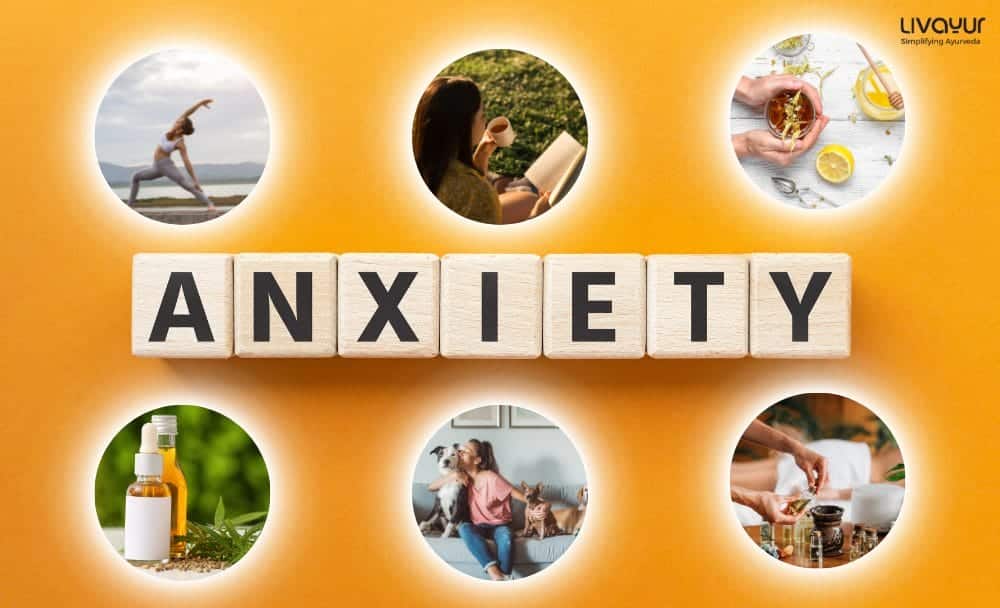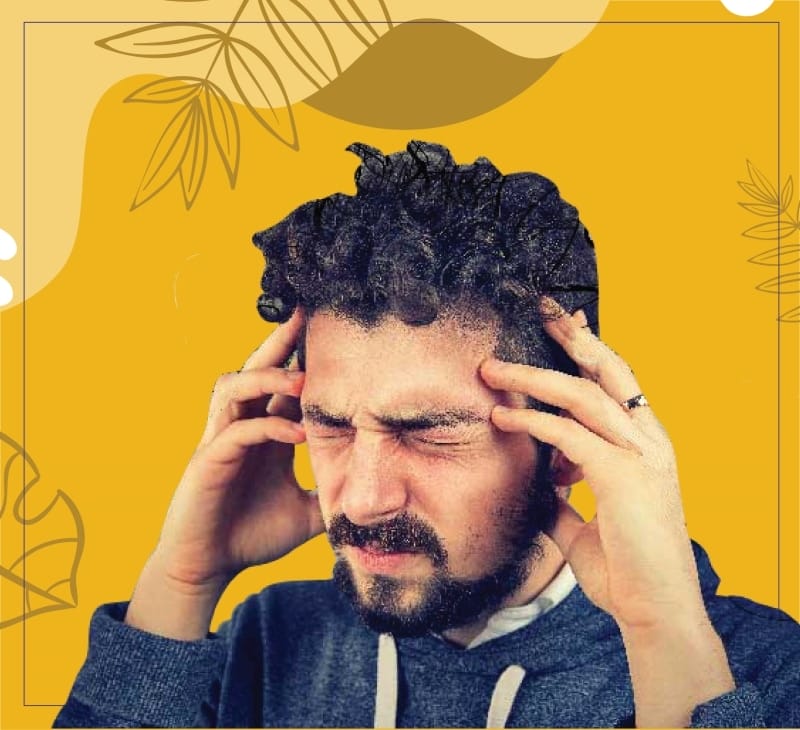
Anxiety is a very common mental health condition. Many believe this to be a modern-day problem, but anxiety has been affecting people for centuries. There are mentions of anxiety-like symptoms in some Ayurvedic texts as well. This mental health condition, today, has affected almost everyone once, yet remains one of those health concerns that’s often pushed under the rug and is rarely talked about. However, it is important to address and resolve this mental health condition, as untreated anxiety can pave way for other serious mental health issues. Here are some basic, everyday tasks and remedies that can help you relieve your anxiety in a natural way.
Natural Remedies for Anxiety and Stress
Natural remedies are generally safe to use alongside more conventional medical therapies. However, alterations to the diet and some natural supplements can change the way anti-anxiety medications work, so it is essential to consult a doctor before trying these solutions. The doctor may also be able to recommend other natural remedies.
Exercise
- Exercise is a great way to burn off anxious energy, and research tends to support this use.
- For example, a 2015 review of 12 randomized controlled trials found that exercise may be a treatment for anxiety.
- However, the review cautioned that only research of higher quality could determine how effective it is.
- Exercise may also help with anxiety caused by stressful circumstances. Results of a 2016 study, for example, suggest that exercise can benefit people with anxiety related to quitting smoking.
Meditation
- Meditation can help to slow racing thoughts, making it easier to manage stress and anxiety. A wide range of meditation styles, including mindfulness and meditation during yoga, may help.
- Mindfulness-based meditation is increasingly popular in therapy. A 2010 meta-analytic review suggests that it can be highly effective for people with disorders relating to mood and anxiety.
Relaxation exercises
- Some people unconsciously tense the muscles and clench the jaw in response to anxiety.
- Progressive relaxation exercises can help.
- Try lying in a comfortable position and slowly constricting and relaxing each muscle group, beginning with the toes and working up to the shoulders and jaw.
Writing
- Finding a way to express anxiety can make it feel more manageable.
- Some research suggests that journaling and other forms of writing can help people to cope better with anxiety.
- A 2016 study, for example, found that creative writing may help children and teens to manage anxiety.
Time management strategies
- Some people feel anxious if they have too many commitments at once. These may involve family, work, and health-related activities. Having a plan in place for the next necessary action can help to keep this anxiety at bay.
- Effective time management strategies can help people to focus on one task at a time. Book-based planners and online calendars can help, as can resisting the urge to multitask.
- Some people find that breaking major projects down into manageable steps can help them to accomplish those tasks with less stress.
Aromatherapy
- Smelling soothing plant oils can help to ease stress and anxiety. Certain scents work better for some people than others, so consider experimenting with various options.
- Lavender may be especially helpful. A 2012 study tested the effects of aromatherapy with lavender on insomnia in 67 women aged 45–55. Results suggest that aromatherapy may reduce the heart rate in the short term and help to ease sleep issues in the long term.
Cannabidiol oil
- Cannabidiol (CBD) oil is a derivative of the cannabis, or marijuana, plant.
- Unlike other forms of marijuana, CBD oil does not contain tetrahydrocannabinol, or THC, which is the substance that creates a “high.”
- CBD oil is readily available without a prescription in many alternative healthcare shops. Preliminary research suggests that it has significant potential to reduce anxiety and panic.
- In areas where medical marijuana is legal, doctors may also be able to prescribe the oil.
Herbal teas
- Many herbal teas promise to help with anxiety and ease sleep.
- Some people find the process of making and drinking tea soothing, but some teas may have a more direct effect on the brain that results in reduced anxiety.
- Results of a small 2018 trial suggest that chamomile can alter levels of cortisol, a stress hormone.
Herbal supplements
- Like herbal teas, many herbal supplements claim to reduce anxiety. However, little scientific evidence supports these claims.
- It is vital to work with a doctor who is knowledgeable about herbal supplements and their potential interactions with other drugs.
Time with animals
- Pets offer companionship, love, and support. Research published in 2018 confirmed that pets can be beneficial to people with a variety of mental health issues, including anxiety.
- While many people prefer cats, dogs, and other small mammals, people with allergies will be pleased to learn that the pet does have to be furry to provide support.
- A 2015 study found that caring for crickets could improve psychological health in older people.
- Spending time with animals can also reduce anxiety and stress associated with trauma. Results of a 2015 systematic review suggest that grooming and spending time with horses can alleviate some of these effects.
Other treatment options Anxiety that is chronic or interferes with a person’s ability to function warrants treatment. When there is no underlying medical condition, such as a thyroid problem, therapy is the most popular form of treatment.
Therapy can help a person to understand what triggers their anxiety. It can also help with making positive lifestyle changes and working through trauma.
One of the most effective therapies for anxiety is called cognitive-behavioral therapy (CBT). The goal is to help a person understand how their thoughts affect their emotions and behavior and to replace those reactions with positive or constructive alternatives.
CBT can help with generalized anxiety and anxiety relating to a specific issue, such as work or an instance of trauma. Medication can also help a person to manage chronic anxiety. A doctor may prescribe medications in any of the following groups:
- antianxiety drugs called benzodiazepines, including Xanax and Valium
- antidepressants called selective serotonin reuptake inhibitors, including Prozac
- sleeping medications, if anxiety interferes with sleep
It is crucial that you address and accept the problem, and then work on managing it, as untreated anxiety can disrupt your daily routine, cause more stress and lead to various other health issues. Anxiety can be easily managed and treated if addressed on time. If you don’t observe a decline in your anxiety levels with these management tips, it is recommended that you seek professional consultation.





















Can I just say what a relief to seek out someone who truly knows what theyre speaking about on the internet. You definitely know the best way to carry a problem to gentle and make it important. Extra folks must read this and understand this aspect of the story. I cant believe youre no more in style since you definitely have the gift.
I’m extremely impressed with your writing abilities as well as with the layout for your weblog. Is that this a paid topic or did you customize it your self? Anyway keep up the excellent high quality writing, it is uncommon to see a great blog like this one these days!